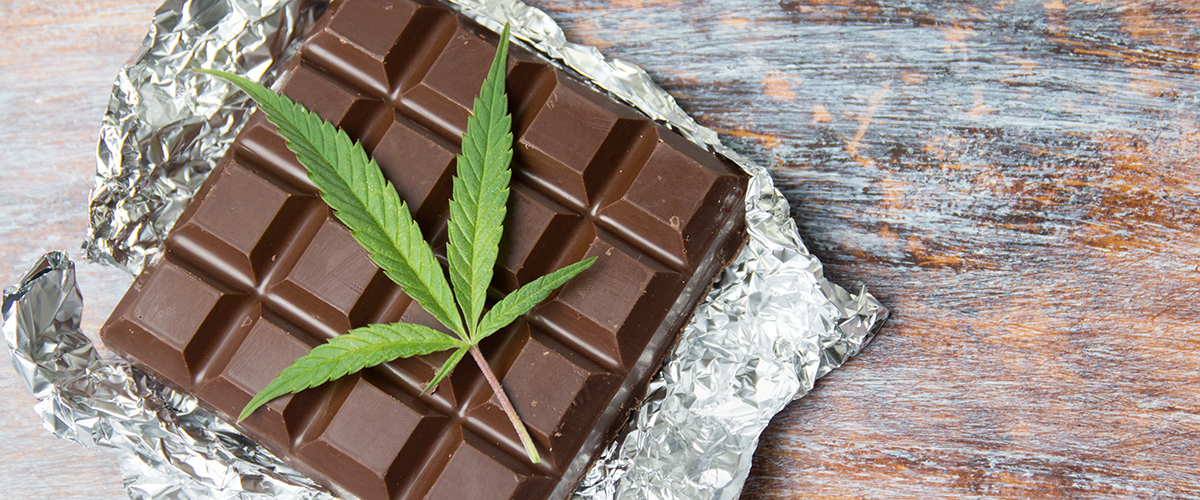[vc_row][vc_column][vc_column_text]
Cannabis edibles are Maine’s fastest growing medical marijuana segment and now make up about 7.4 percent of the market.
Maine’s medical marijuana patients spent $2 million on cannabis edibles products in 2016, according to state tax records, up from $1.2 million the year before. Edibles are the fastest growing segment of the state’s medical marijuana market and now account for about 7.4 percent of the state’s $26.8 million industry. In 2015, sales of edibles represented about 5.4 percent of the total purchases at dispensaries.
Edibles are marijuana-infused foods and beverages. A concentrated cannabis extract is typically added to a butter or oil and then used in prepared foods like cookies, cakes, and muffins. Depending on the strain of cannabis used, edibles can contain high levels of tetrahydrocannabinol (THC), the well-known psychoactive compound, or cannabidiol (CBD), a non-psychoactive compound, or a combination of the two.
“Smoking’s not for everybody,” Chad Crandall, co-owner of a company in Maine that produces medical marijuana-infused edibles, told the Press Herald. “Some people feel really weird about smoking their medicine. Some can’t have the smell, either because of their job or their housing situation. Maybe they’re teachers. Maybe they live in a nursing home. For our sickest patients, medibles and salves, it’s the only option left. It’s a sweet treat that doesn’t hurt their throat and can last for hours.”
Edibles, which within the medical marijuana market are sometimes referred to as “medibles,” have to be digested before compounds reach the bloodstream, so they elicit a delayed yet extended effect. They, like cannabis oils and capsules, offer a more lung-friendly option and allow consumers to take cannabis products without impacting those around them.
“Most of these inquiries [for edibles] come from people ages 30 to 60,” said Keri-Jon Wilson, co-owner of a Maine medical cannabis edible company. “For that older generation, edibles can either be a nice introduction to cannabis, or an alternative way to use cannabis for those who want to be discreet or have health concerns from smoking.”[/vc_column_text][/vc_column][/vc_row][vc_row][vc_column][vc_single_image image=”17365″ img_size=”1200×250″ onclick=”custom_link” img_link_target=”_blank” link=”https://www.medicalmarijuanainc.com/overview-of-medical-marijuana-research/”][/vc_column][/vc_row][vc_row][vc_column][vc_column_text]The program’s edibles figures do not include any sales by the 3,200 registered caregivers that produce wholesale-infused products for the medical marijuana market. Caregiver sales are not tracked by the state, so estimates on their edible market are unavailable.
The head of the Maine Dispensary Operations Association, Tim Small, estimates that by 2018 edibles will make up about 20 percent of all medical marijuana dispensary sales in Maine.
Maine voters legalized medical marijuana November 1999. The state has experienced a surge in registered medical marijuana patients over the past year. The Medical Use of Marijuana Act allows qualified patients with the recommendation of a licensed physician to possess up to 2.5 ounces of useable or prepared marijuana and to cultivate a maximum of six mature plants.
Maine, which legalized adult use marijuana in the 2016 election, is slated to launch its recreational market in early 2018. It’s one of eight U.S. states that have passed laws legalizing and regulating adult use marijuana.
On average, edibles make up 10 percent of the total cannabis market in states where recreational marijuana is legal, the Press Herald reports, suggesting Maine’s edible market will soon grow even higher. In 2016, the edible market made up 14 percent, 9 percent, and 7 percent of total adult use sales in Colorado, Washington, and Oregon, respectively.
Learn more about cannabis laws in Maine and throughout the U.S. through our education page. Keep up with the growing cannabis industry by visiting our news feed.[/vc_column_text][/vc_column][/vc_row]






